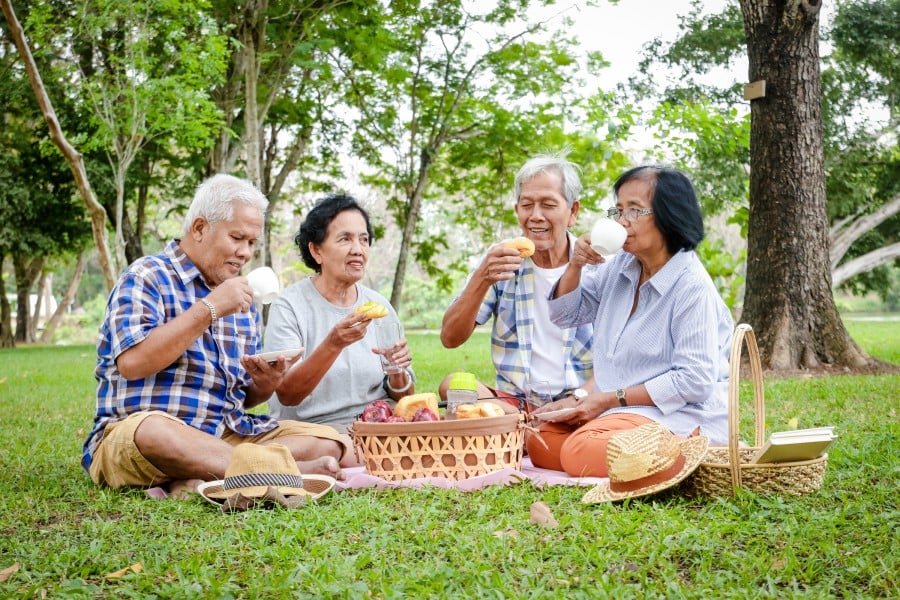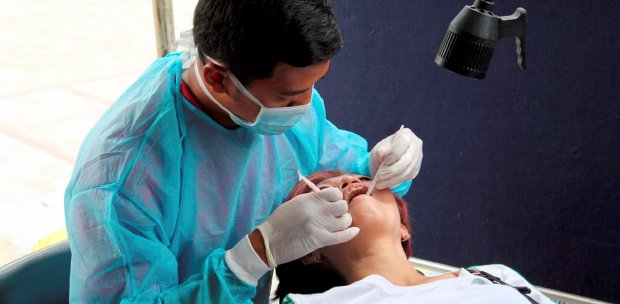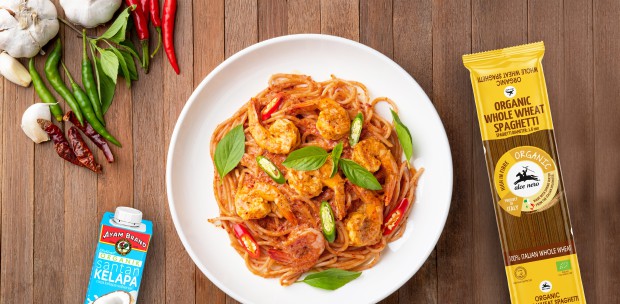MALAYSIANS are now back to travelling and "balik kampung" to visit family, loved ones and friends.
Being a true Malaysian, delicious lip-smacking food would surely be one of the key highlights of any trip to one's hometown.
However, for people living with diabetes, this time of travelling and feasting may be stressful.
How can diabetes patients and their caregivers help them enjoy the experience of good food while maintaining a healthy blood sugar level?
Here's a compilation of advice and tips on maintaining a healthy blood glucose level when you travel and feast with loved ones.
1. Healthy Eating
Healthy eating does not mean you eat salad while others eat turkey or biryani. You can join the fun but choose your food wisely.
Go back to the basics and follow the Malaysian Healthy Plate
(Pinggan Sihat Malaysia) which advocates a healthy portioning of #SukuSukuSeparuh - carbohydrates (quarter plate), proteins (quarter plate), fruits and vegetables (half plate), advises University Malaya Medical Centre (UMMC) clinical dietitian, Poh Kai Ling.
This is the best but often forgotten guide for healthy eating.
"When it comes to watching your blood sugar levels, the goal is to consume healthy, balanced meals consisting of a variety of food while practising portion control according to the Malaysian Healthy Plate," she says.
Moderation and portion sizing are key factors. You can eat any carb but in moderation and in correct portions," adds Poh.

2. Choose Your Carbs Wisely
In the Malaysian diet, carbohydrates such as rice, bread, tosai or noodles are all similar in nature and can be interchangeable. Sources of preferred carbohydrates would be from whole grain products, fruits, low fat dairy products and legumes.
Carbohydrates from sugar sweetened drinks and food such as white sugar, brown sugar, honey, gula Melaka, condensed milk and jam should be limited.
Ultimately, portion size is crucial, no matter what type of carbohydrate is being consumed.
Sufficient carbohydrates should be included in our daily diet to avoid hypoglycaemia.
"Adding more fibre and taking low Glycemic Index food is helpful for diabetes patients," says Poh.
For example, if you are able, choose brown rice over white rice which is higher in fibre. This can help slow down sugar absorption and improve blood sugar levels.

3. Do not skip meals
One common mistake made by most diabetes patients is to skip meals. This normally happens when they anticipate going to a party or eating out, assuming that by skipping meals, they can manage their blood sugar levels. This is not true.
Skipping meals can negatively impact blood glucose levels and sometimes cause hypoglycaemia or low blood sugar in combination with certain diabetes medications or insulin, which may have severe outcomes.
4. Get enough sleep
Sleep plays an important role in maintaining healthy blood sugar levels. When you are getting enough sleep, you may find that you have an easier time controlling your blood sugar. Try not to eat a heavy meal right before bedtime and avoid alcohol or caffeine late at night.
5. Check your blood sugar
Check your blood sugar level regularly, two hours after your meal so you are aware of your condition.
Bring your test kit and insulin with you everywhere, especially when travelling.
6. Physical Exercise
University Malaya Medical Centre consultant endocrinologist and head of endocrinology, Associate Professor Dr Jeyakantha Ratnasingam, says increased physical activity and weight reduction are crucial for people with diabetes. A total duration of at least 150 minutes per week or 30 minutes a day is recommended for exercise.
However, the type and duration of physical activity or exercise should be individualised and best incorporated into daily life as much as possible.
A significant weight loss of more than 15 per cent of initial body weight, at the initial few years after the onset of diabetes, can in fact help the patient go into remission.
For overweight non-diabetic individuals, reducing weight can help in the prevention of diabetes altogether, adds Dr Jeyakantha.

TAKE ACTION
Diabetes is an intricate and challenging disease that requires the person with diabetes to make multiple daily decisions regarding food, physical activity and medications.
According to the National Health and Morbidity Survey 2019 , it is estimated that 18.3 per cent (3.9 million people) of the adult population in Malaysia is currently living with diabetes.
This translates to 1 out of 5 persons. What's alarming is that only 50 per cent of the 3.9 million Malaysians actually knew they had diabetes prior to the survey.
The survey also shows that more than 50 per cent of the Malaysian population is overweight or obese.
Dr Jeyakantha says Malaysians must get themselves screened regularly for diabetes, particularly if they are at risk.
Individuals at risk include people who are overweight or obese, have hypertension and high cholesterol, history of gestational diabetes, abdominal obesity (increased waist circumference), strong family history of diabetes, polycystic ovarian syndrome (PCOS) and those on steroids.
He adds that most Malaysians who are diabetic or have pre-diabetes, think they are healthy because diabetes is often asymptomatic.
It is therefore crucial to get yourself screened regularly. Screening is the best way to prevent diabetes and its complications.
To address this pressing need, the For Your Sweetheart Campaign invites all Malaysians to keep themselves and their loved ones healthy with a free diabetes HbA1c screening at participating clinics nationwide.
Log on to www.foryoursweetheart.my to register for the free screening. Each outlet/clinic has a limited number of vouchers available. It is on a first come first served basis and new locations will be updated monthly.
And for some healthy yet delicious recipes to help you eat well, go to Healthy Cooking with Chef Nik here: https://www.foryoursweetheart.my/article/simple-healthy-cooking-with-che...




